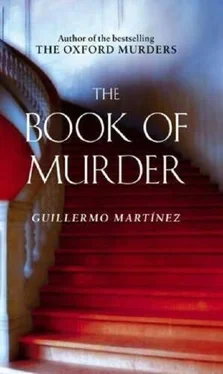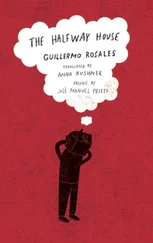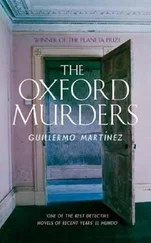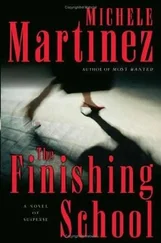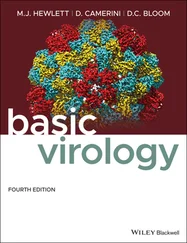
Guillermo Martinez
The Book of Murder
© 2008
The telephone rang one Sunday morning, tearing me from the sleep of the dead. When I answered, a voice simply said Luciana, in a weak, anxious whisper, as if it were all I’d need to remember her. Disconcerted, I echoed the name, and she added her surname, which roused a distant memory. Then, in an anguished tone, she reminded me who she was: Luciana B, the girl who took dictation. Of course I remembered. Had it really been ten years? Yes, almost ten, she confirmed. She was glad I still lived in the same flat. But she didn’t sound at all glad. She paused. Could she see me? She had to see me, she corrected herself, the desperation in her voice removing any possible delusions on my part.
“Yes, of course,” I said, slightly alarmed. “When?”
“Whenever you can, as soon as possible.” I looked round doubtfully at my untidy flat, testament to the indolent forces of entropy, and glanced at the clock on the bedside table. “If it’s a matter of life and death,” I said, “what about this afternoon, here, say at four?”
There was a hoarse sound at the other end of the line and a faltering breath, as if she were trying to hold back a sob. “I’m sorry,” she mumbled, embarrassed. “Yes, it is a matter of life and death. You really don’t know, do you? Nobody knows. Nobody realises.” I thought she was about to cry again. There was a silence, during which she struggled to regain her composure. Even more quietly, as if she could hardly bring herself to say the name, she whispered: “It’s about Kloster.” And before I could ask any questions, as if afraid I might change my mind, she said: “I’ll be there at four.”
Ten years earlier, I had broken my right wrist in a stupid accident and had gone about with my hand, to the tips of my fingers, held in the rigid grip of a plaster cast. At the time, I was due to deliver my second novel to the publisher but all I had was a draft in my impossible handwriting-two thick spiral notebooks riddled with deletions, arrows and corrections that no one but me could decipher. After thinking it over for a few moments, my editor, Campari, came up with the solution: he knew that Kloster had for some time now been using a typist-a girl, very young and apparently so perfect in every way that she had become one of his most prized possessions.
“So why would he lend her to me?” I asked, afraid to believe my luck. Kloster’s name, plucked from on high and dropped so casually by Campari, had impressed me a little despite myself. We were in Campari’s office and a framed copy of the dust jacket of Kloster’s first novel that hung on the wall-the editor’s only concession to decoration-created a resonance that was hard to ignore.
“I’m sure he wouldn’t want to. But Kloster’s out of the country till the end of the month. He’s at one of those writers’ retreats where he shuts himself away to polish his novels before publication. He hasn’t taken his wife with him, so by extension,” he said with a wink, “I shouldn’t think his wife has let him take his secretary.”
There and then he called Kloster’s home, offered effusive greetings to someone who was evidently the wife, listened with resignation to what must have been a list of complaints, waited patiently for her to find the name in the address book, and at last jotted down a number on a slip of paper.
“The girl’s called Luciana,” he said. “But be careful. You know Kloster’s the jewel in our crown-you’ve got to return her intact at the end of the month.”
The conversation, though brief, had provided a glimpse into the very private, reclusive existence of the only truly quiet writer in a country whose authors liked above all to talk. As I’d listened to Campari I’d grown more and more surprised and couldn’t help voicing my thoughts: Kloster, the terrible Kloster, had a wife? He even had something as unthinkable, as positively bourgeois, as a secretary?
“And a little girl he adores,” added Campari. “He was almost forty when she was born. I’ve bumped into him a couple of times when he’s been taking her to the park. Yes, he’s a loving family man. Who’d have thought it?”
At any rate, although sales of Kloster’s books hadn’t yet exploded, as they later would, he had for some time, particularly since the publication of his tetralogy, been the writer we all wanted to destroy. Since his first book, he’d been too big, too good. Between novels, he withdrew into bewildering silence, which we found unsettling, threatening: it was the silence of the cat while the mice published their efforts. With each new groundbreaking work, we wondered not how he’d done it but how he’d done it again. And to make matters worse, he wasn’t even as old, as far removed from our generation, as we’d have liked. We comforted ourselves with the thought that Kloster must be from another species, a malevolent freak, rejected by humanity, shut away, resentful and alone, as hideous in appearance as any of his characters. We imagined that before becoming a writer he had been a forensic pathologist, or museum embalmer, or hearse driver. After all, he had chosen as the epigraph for one of his books the contemptuous words of Kafka’s ‘hunger artist’: “I had to fast because I couldn’t find a food I enjoyed. If I had found that I would have eaten to my heart’s content.”
On the back cover of his first book it said politely that there was something ‘unholy’ about his observations, but as soon as you started reading his work it became clear that Kloster wasn’t unholy, he was merciless. From the opening paragraphs, his novels dazzled, like the headlights of a car on the road, and too late you realised that you’d become the terrified rabbit, frozen, heart beating, and all you could do was continue, hypnotically, to turn the pages. There was something almost physical, and cruel, in the way his stories pierced layers, stirring long-buried fears, as if Kloster had the sinister gift of boring into your brain while holding you down with the subtlest of pincers. Nor were they exactly, reassuringly, detective stories (how we would have liked to dismiss him as the author of mere detective stories). What there was in them was evil, in its purest form. And if the word hadn’t been so overused and devalued by TV soaps it might have provided the best definition of his novels: they were evil. Proof of how he loomed over us like a colossus was the way we spoke of him in hushed tones, as if nobody ‘outside’ would find out about him if we strove to keep him secret. Nor did the critics really know how to deal with him, and all they could do was stammer that Kloster wrote ‘too’ well, so as to seem unimpressed. And they were right: he did write too well. Out of reach. In every scene, every line of dialogue, every finishing touch, the lesson was the same-and discouraging. I’d tried a hundred times to ‘see’ how he did it, but I’d concluded simply that behind the desk there must be an obsessive, magnificently sick mind with the power of life and death, a barely restrained megalomaniac. So it’s hardly surprising that ten years ago I was absolutely fascinated by the prospect of seeing what the ‘perfect’ secretary of this fanatical perfectionist was like.
I phoned her-a calm, cheerful, polite voice-as soon as I got back to my flat, and we arranged to meet. When I went down to let her in I found a tall, slim girl, with a serious yet smiling face, high forehead, brown hair drawn back into a ponytail. Attractive? Very attractive, and terribly young-she looked like a first-year student, just out of the shower. Jeans and a loose blouse, coloured wristbands on one wrist, trainers with a star print. We smiled at each other without speaking in the narrow confines of the lift: very white, even teeth, hair still a little damp at the ends, scent…Inside my apartment, we soon agreed hours and pay. She sat down quite casually at the computer, dropping her small handbag beside her, and making the chair swivel gently with her long legs as we talked. Brown eyes, an intelligent, quick, sometimes cheerful look. A serious yet smiling face.
Читать дальше
